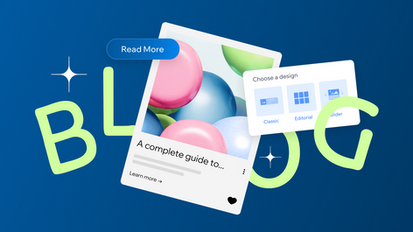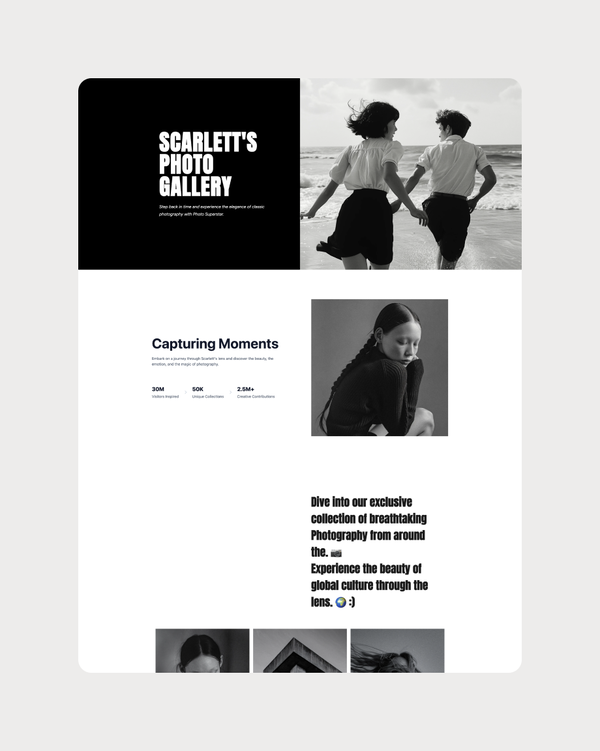Front-End Web Developer Resources
How to Master Front-End Web Developer
Front-End Web Developer
Cooking and baking are not only enjoyable activities, but they can also be a great way to express creativity and share delicious food with others. If you run a food blog or website, building recipes is a crucial part of your content creation. Whether you are a seasoned chef or a home cook, creating enticing and unique recipes can help you attract more visitors to your website and keep them coming back for more. Here are some tips on how to build recipes on your website that will impress your audience and keep them engaged.

The Ultimate Guide to Front-End Web Developer
Front-End Web Developer
When creating a website layout template, there are several key factors to consider. These include the overall structure of the site, the placement of elements such as navigation menus and content sections, and the use of white space to create a clean and uncluttered design. In this article, we will discuss these factors in more detail and provide tips for designing an effective website layout template.
The first step in designing a website layout template is to consider the overall structure of the site. This includes determining the number of pages the site will have, as well as how those pages will be organized. For example, will the site have a homepage with links to other pages, or will it have a single-page design with all content on one long scrollable page? This decision will impact the layout of the site and how users navigate through it.
Once the overall structure of the site has been determined, the next step is to think about the placement of elements within the layout. Navigation menus, for example, are a key component of any website layout template. They should be easy to find and use, with clear labels that indicate the different sections of the site. Placing the navigation menu at the top of the page or along the side is a common practice, but it can also be placed in other locations, such as at the bottom of the page or as a dropdown menu. Experiment with different placements to see what works best for your site.
In addition to navigation menus, content sections are another important element to consider when designing a website layout template. These sections should be clearly defined and easy to read, with headings and subheadings to break up the text. Images and multimedia elements can also be used to enhance the visual appeal of the site and engage users. When placing content sections on the page, be sure to leave plenty of white space around them to create a clean and uncluttered design.
Speaking of white space, this is another key factor to consider when designing a website layout template. White space, also known as negative space, refers to the empty space between elements on the page. It helps to create a sense of balance and harmony in the design, allowing elements to stand out and making the layout easier to read and navigate. Be generous with white space in your website layout template, especially around important elements such as headings, images, and buttons.
When designing a website layout template, it is also important to consider the responsive nature of the design. With more and more users accessing websites on mobile devices, it is essential to create a layout that looks good and functions well on screens of all sizes. This means using a responsive design approach, where the layout adapts to different screen sizes and resolutions. Test your website layout template on various devices to ensure that it looks and works as intended.
AI web builders utilize advanced algorithms and machine learning to automatically design and build websites based on user input and preferences. This technology eliminates the need for manual coding, design, and development, making it accessible to individuals and business owners without technical skills.
One of the key features of AI web builders is their ability to generate unique designs tailored to the user’s needs. By analyzing thousands of templates and design elements, AI algorithms can create a visually appealing website that reflects the brand’s identity and message. Users can also customize these designs by adjusting colors, fonts, layouts, and images to create a website that stands out from the competition.
In addition to design customization, AI web builders also offer advanced features such as mobile responsiveness, SEO optimization, and e-commerce capabilities. These tools ensure that websites are optimized for various devices, search engines, and online transactions, making them more effective in reaching and engaging target audiences.
Another advantage of using AI web builders is their speed and efficiency. With traditional web design methods, creating a website from scratch can take weeks or even months. In contrast, AI web builders can generate a fully functional website in a matter of hours, saving time and resources for users. This rapid turnaround time allows businesses to quickly establish an online presence and start generating leads and sales.
Furthermore, AI web builders offer scalability and flexibility to accommodate the changing needs of businesses. Users can easily update, modify, or expand their websites without the need for technical expertise or assistance. This agility enables businesses to stay competitive in a dynamic market by adapting to new trends and technologies quickly.
Despite its many benefits, some may argue that AI web builders lack the personal touch and creativity of human designers. While it is true that AI algorithms are limited by predefined rules and patterns, these tools can still produce visually appealing and functional websites that meet the user’s requirements. Moreover, users can add their unique touch to the design by incorporating original content, images, and branding elements.

Front-End Web Developer Best Practices
Front-End Web Developer
Conclusion
In conclusion, website builders are a valuable tool for anyone looking to establish an online presence quickly and affordably. These platforms offer easy-to-use interfaces, customizable templates, built-in features, and quick deployment, making it easy for anyone to create a professional-looking website without any technical skills.
When choosing a website builder, consider factors such as ease of use, templates, features, pricing, and support to ensure you select the right platform for your needs. With the right website builder, you can create a stunning website that showcases your brand, products, or services and helps you reach a wider audience online.


